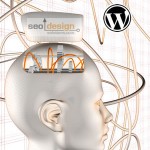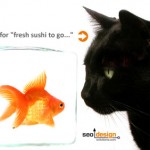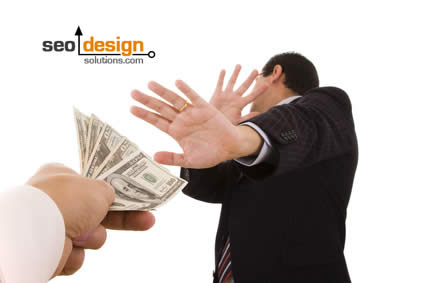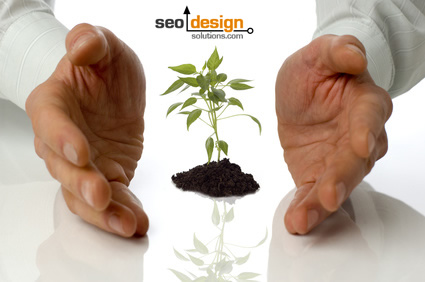I have heard the connotation that PPC (pay per click marketing) is like crack, that once you start you can’t stop using it, and for many businesses rightly so.
In all seriousness, the notion of the action / reward modality “if you pay/ your website ranks here” is so simple with its deep-rooted psychological and monetary advantages; the exorbitant investment is secondary to the results it produces. Quite simply, people pay for results…
Let’s just say that something about the monetary transactions and conversion that occur as a result of PPC (pay per click marketing) has a way of persuading those with the budget to keep on “renting those spots“ vs. “investing and owning those keywords and positions organically” in search engines.
But, what about the businesses that have dug in, planted roots and sprouted organic rankings based on seeds of intent with keywords and landing pages that convert on their own accord?
It is fair to say that those who identify organic search as a preferred method of choice are in fact addicted to SEO?
Let’s investigate this further:
- PPC provides instant gratification for advertisers eager to drive traffic to their landing pages / paths or marketing message.
- It’s relatively easy to implement and testing keyword continuity can range from selecting an “exact match” or “broad match” phrase and then testing the consumer dynamic.
- The pages do not always have to have contextual relevance, therefore many of the elements of organic SEO and organic rankings *(which depend on relevance) can be eliminated; making PPC ideal for commerce.
But what About the Cons/Disadvantages of PPC?
- Pricing is not fixed and is driven on competitive variables such as the bid price of other competitors.
- You pay for every click “whether or not it converts to a sale, lead or quantified objective” which means that search engines win and you only win half the time when traffic converts.
- Once you stop paying, your ad gets pulled and it was as if you never existed until you have money in hand (ready to gain entry back in the VIP conversion club).
The Benefits/Advantages of SEO:
- It is the same search engine result pages consumer use to click through from PPC.
- Eight of ten clicks are on the non-sponsored “natural listings”.
- Getting there takes time, but once you’re there, remaining buoyant becomes less difficult.
The Cons/Disadvantages of SEO:
- The competition for natural results can be fierce (and unyielding).
- Not every site is willing to make the changes necessary, has the budget to compete or has a platform flexible enough to be conducive to SEO, so often aside from on page changes, information or site architecture requires enhancements or modification (which is costly).
- You will require a significant amount of time, money, content and links to gain competitive keyword positioning (which takes time, trust and authority); and each site gains and / or develops “domain authority” based on its own tipping point and time-line.
The reasons why someone would need either (SEO or PPC) is apparent, but just because one is easier than the other, does not make it a superior choice for positioning.
So, What’s Next, Both?
Rather than argue to infinity about the pros and cons of PPC or SEO, the reality is simple, they both stem from search engine traffic. The fact is, visibility and positioning equate to probability for conversion.
It’s either your competitors website or page ranking for a keyword or it is your website or web page! Based on the search phrase, your relative position, the snippet you use (either the PPC call to action or organic search engine snippet) mixed with the mood of the consumer determines how welcoming your page is for them to engage. Business goes where it is most welcome.
Most consumers equate a top ranking position with relevance; and where you rank directly correlates to basic principles of conversion and how high on the click-through hierarchy your landing page is. Most consumers impulsively click the top 3 positions, so its just a matter of getting there…
Those in the golden triangle (in range of the top 5 search engine results for a query) exponentially have a greater chance for conversion compared to pages below the fold (the positions 6-10, below the scroll line in search engines).
In a world of what you click is what you get, top rankings still capture the lion share of visibility and user engagement. The most coveted position is the top 2 rankings for any given keyword, the only variable here is just that “the keyword itself”.
The objective, acquire and /or pay for the most coveted positions; and with no shortage of content emerging on the web any time soon, grading and scoring each metric is a constant work in progress.
PPC is quick, clean, concise and ever present; SEO on the other hand is methodical, calculated, relevant and looming. Both in their own right are formidable when considering alternative marketing modalities to television, print and radio advertising.
With over 84% of people starting their browsers with a search engine as the homepage, visibility in search engines is critical for businesses online.
Quality comes at a price. As the quandary between PPC and SEO plays out, regardless of how you pay for it, positioning matters. With SEO, there is an air of editorial comfort of knowing that others endorsed your product or service and are “passing it along” as a resource for others vs. just paying for a slogan or tag line and then appearing on a search page.
The choice between which one you use is ultimately is up to you. Just keep in mind it is the same customer behind those clicks; so why should you have to pay, if people click for free?
If you could spend 20,000 on pay per click in one month or you could spend $20,ooo on SEO, which would you choose? One gives back in the short-term and can potentially become a crutch and the other is like giving a hungry man a fishing pole.
Long term benefits and equity or instant gratification with a tinge of risk and dependency, with the stakes for consumer attention at it highest summit, ROI is the definitive yardstick to measure results.










Great article Jeffrey. I was actually thinking about getting into PPC heavily a couple of months ago, mainly because it seemed every affiliate marketer is doing it and many were reporting large profits. However, over the last few months I’ve found myself focusing entirely on organic listings and I’m so happy I did. Rather than messing around with bid prices and worrying about days when I pay out more in advertising than I get back in revenue, I now keep working on organic and every sale is like a bonus.
I’ve also often found that the keywords that a lot of people bid for are so easy to rank for it almost feels like cheating. Whilst they’re paying hundreds per week on PPC for a keyword I’ll rank organically pretty quickly and enjoy the lion’s share of the traffic! It’s a nice feeling to have!
Justin:
If people only knew how easy the long-tail was for snatching up rankings PPC would be a thing of the past.
Obviously there is a place for both (those who can wait and those who cannot), but SEO is pure value through and through. That is, at least if it is done right…
Thanks again for breezing through.
If PPC is like “crack” then would that make organic traffic like “heroin”?
I used PPC once when I first launched a site, but through continuous content and some basic SEO research I was able to get organic traffic within a month or so, then PPC was gone forever for me!
Keith:
You have taken the metaphor to an entirely new level, Bravo!!!
Even though we will probably end up ranking for all of the keywords mentioned on accident, it’s well worth it trying to free others from the lunacy of PPC (or at least looking at it like the ONLY way to rank)…
Cheers
Thanks for the details…liked the way you have elaborated the advantages and disadvantages.
Jeffrey, this is a great article! Very few articles on the topic are as objecitve as this. Thanks.
Hello
This is a great article.Its very interesting for me to know about advantages and disadvantages of SEO.You have well written that the choice between which one we use is ultimately is up to us.Thank you..
Hi again Jeffrey. I hope you don’t mind me posting off-topic slightly but I was wondering whether you had any blog posts about how to optimize for deep site architecture? I’m currently building a site which will have thousands of categories but don’t want to come across problems with search engine spiders if pages are located 4 or 5 levels deep. I’ve been re-reading a lot of your posts whilst trying to rack my brain for ideas.
If this is something you haven’t covered on your blog, no problem, I don’t want you to waste your time writing a lengthy reply if it’s going to distract you from other business. Just thought I’d ask to see if you have any tips.
P.S. What I’m referring to is categories in a hierarchy like Insurance – Car Insurance – Ford Car Insurance – How to get cheap car insurance (article), and optimizing the article page and category pages.
Congratulations to you!
@Justin:
Aside from cross-linking your top level themes, I wrote this post for you to address the tactic.
You will need tons of deep links over time (perhaps try article marketing with varied anchors) to see what sticks. All you need are 5-10 solid links per page then the link flow moves up to the category/sub folder.
As long as the main landing page for the category / folder has links to secondary landing pages and vice versa (with the intended anchors) then you should start stemming in no time.
Anyway, the following post does provide an overview…
https://seodesignsolutions.com/blog/seo/seo-tips-for-theming-and-siloing/